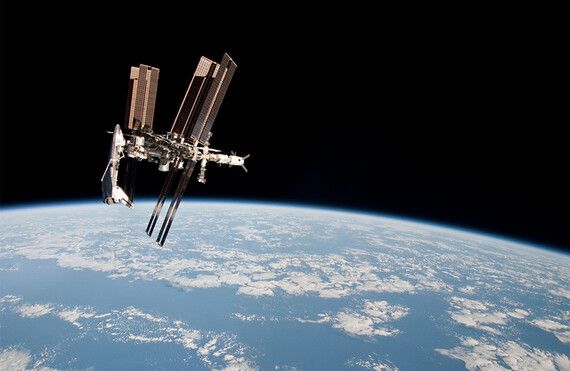Many commentators are suggesting that the United States should work with rising states and the developing world in the coming decades to forge a more inclusive international system that can also accommodate national interests. The policy prescriptions that spring from this dialogue include adjustments in American agricultural, military, and trade policies, along with institutional reforms to address grievances within international organizations.
While such policy shifts would certainly alleviate some of the pressure created by the rise of new powers, recent recommendations have tended to overlook an important arena where American willingness to respect the legitimate national interests of Moscow, New Delhi, Brasilia, and Beijing will increasingly be tested: outer space.
American policy, especially the 2006 National Space Policy update, has been criticized for taking a unilateralist view of the cosmos. While the United States has long reserved the right to deny the use of space to other states if necessary, the update uses broad language to describe the rights America asserts to protect its space assets. This declaration further separates the United States from the diversifying ranks of space-faring nations that view space primarily as a tool for development.
For the United States, space-based satellites enable projection of the military power that defines its singular role in the world—as a result, they must be carefully safeguarded by any means necessary. Europe is often cited as providing the template for harnessing space development and is currently forging international space partnerships that reflect the changing geopolitical forces on earth. Developing countries use satellites as a valuable tool in sustainable development, while rising powers see space programs as an important status symbol. Managing these competing forces in space, and perceptions of the U.S. role there, will be an essential public diplomacy challenge facing any new American administration.
China provides the most dramatic example of how space can complicate relations with rising powers. Over the past decade, even while their economic interdependence solidified as a pillar of international order, China and the United States used the threat they pose to each other to justify military space policies that culminated in a volley of Cold War–style anti-satellite weapons tests between January 2007 and February 2008. Each side claimed that testing of their respective weapons was for research and safety purposes, but China's 2007 test makes it clear that the United States cannot dictate rules for space.
China's participation in the European effort to create an alternative to the U.S. military–controlled Global Positioning System inspired intense lobbying from Washington, and although China's stake in the project has been significantly decreased, the issue is still sensitive. China's space program has also bolstered its attempts to present an alternative to American power. The United States opposes Chinese participation in the International Space Station, and has resisted arms control agreements such as the one offered by Russia and China in February, claiming that insurmountable difficulties in verification would make it irrelevant.
While there are certainly reasons to doubt the sincerity of the joint Russian-Chinese treaty proposal, and legitimate questions about China's ultimate intentions in space, engagement on the issue, whether through support for established attempts to create a code of conduct for space or through bilateral cooperation, should be considered in the context of the wider discussion about incorporating the influence of new powers into the international system.
FULL TRANSCRIPT: Twilight War: The Folly of U.S. Space Dominance, Mike Moore
Current tensions with China in space will continue unless they are addressed, and how they are resolved will serve as an important test case for the United States' ability to work with new powers. As space activity continues to evolve from a period of exploration to one of exploitation of resources and benefits, managing competition and cooperation in space will require a dialogue among space-faring nations that should begin as soon as possible.
Outer space, and the constellation of satellites that inhabits it, constitutes the ceiling of the current international order. Space policy decisions fall along a fault line of long- and short-term perspectives on how that order will play out. Even the perception of hegemonic space aims in Washington would give rising powers an issue around which they could coalesce to present a more equitable approach to wielding power, a model that would be attractive to the rest of the developing world.
As rising powers envision how space will influence their international standing over the long term, it is important that the United States not allow its virtually unassailable space advantages to overshadow its stated commitment to a more collaborative future—in the heavens as well as on earth.




